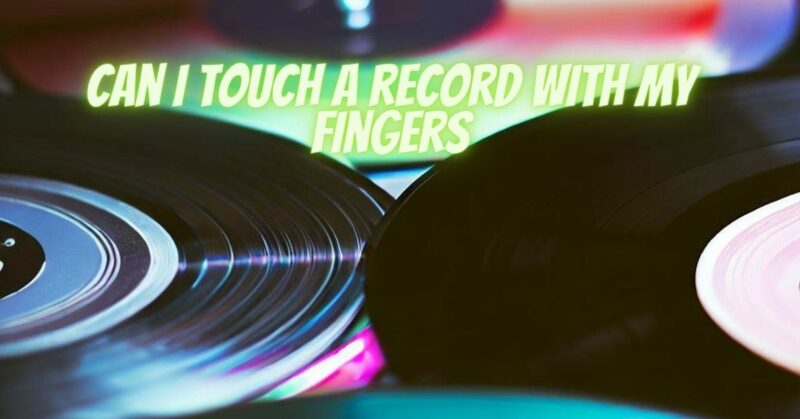Vinyl records are cherished for their analog sound and tactile experience. However, concerns arise about whether it is safe to touch vinyl records directly with fingers. In this article, we will explore the impact of touching records and provide guidance on best practices for handling to ensure the preservation of sound quality and the longevity of your vinyl collection.
- Contamination and Surface Damage:
Touching the playing surface of a vinyl record with your fingers can introduce oils, dirt, and other contaminants. These substances can affect the playback quality by creating noise, reducing clarity, and causing potential damage to the grooves. Over time, accumulated oils and debris may require more frequent cleanings and impact the overall lifespan of the record.
- Fingerprints and Smudges:
Fingerprints and smudges are common concerns when touching vinyl records directly. These marks can interfere with the playback, causing audible noise and distorting sound quality. Additionally, the oils from fingerprints can attract and hold dust particles, exacerbating surface noise issues.
- Handling Pressure:
Applying excessive pressure while handling records can lead to warping or bending, compromising the flatness and integrity of the vinyl. This can result in tracking problems, skips, and potential damage to the stylus or the record itself.
Best Practices for Handling Vinyl Records:
- Hold Records by the Edges: When handling vinyl records, always hold them by the outer edges or use the record label as a safe contact point. Minimizing direct contact with the playing surface reduces the risk of contamination and damage.
- Clean Hands: Before handling records, wash your hands thoroughly with mild soap and water to remove oils and dirt. Dry your hands completely to prevent moisture transfer to the record.
- Finger Gloves or Handling Accessories: For added protection, consider using finger gloves or specialized handling accessories designed to minimize direct contact with the playing surface. These options provide an extra layer of protection against fingerprints and smudges.
- Outer Sleeves and Inner Sleeves: Keep your records in protective outer sleeves to shield them from dust, moisture, and handling damage. Additionally, use anti-static inner sleeves to further safeguard the playing surface from static charges and contaminants.
- Record Cleaning: Regularly clean your vinyl records using proper cleaning techniques and dedicated record cleaning solutions. This helps remove accumulated dirt, oils, and debris, ensuring optimal sound quality and longevity.
Conclusion:
While vinyl records can be appreciated for their tactile nature, it is best to avoid touching the playing surface directly with fingers. The oils, dirt, and contaminants present on fingertips can affect sound quality and potentially damage the grooves. By adhering to best practices such as holding records by the edges, keeping hands clean, and utilizing protective sleeves and handling accessories, you can preserve the integrity and sound quality of your vinyl collection for years to come. Remember, proper care and handling are essential for maintaining the full analog experience and ensuring the longevity of your vinyl records.


